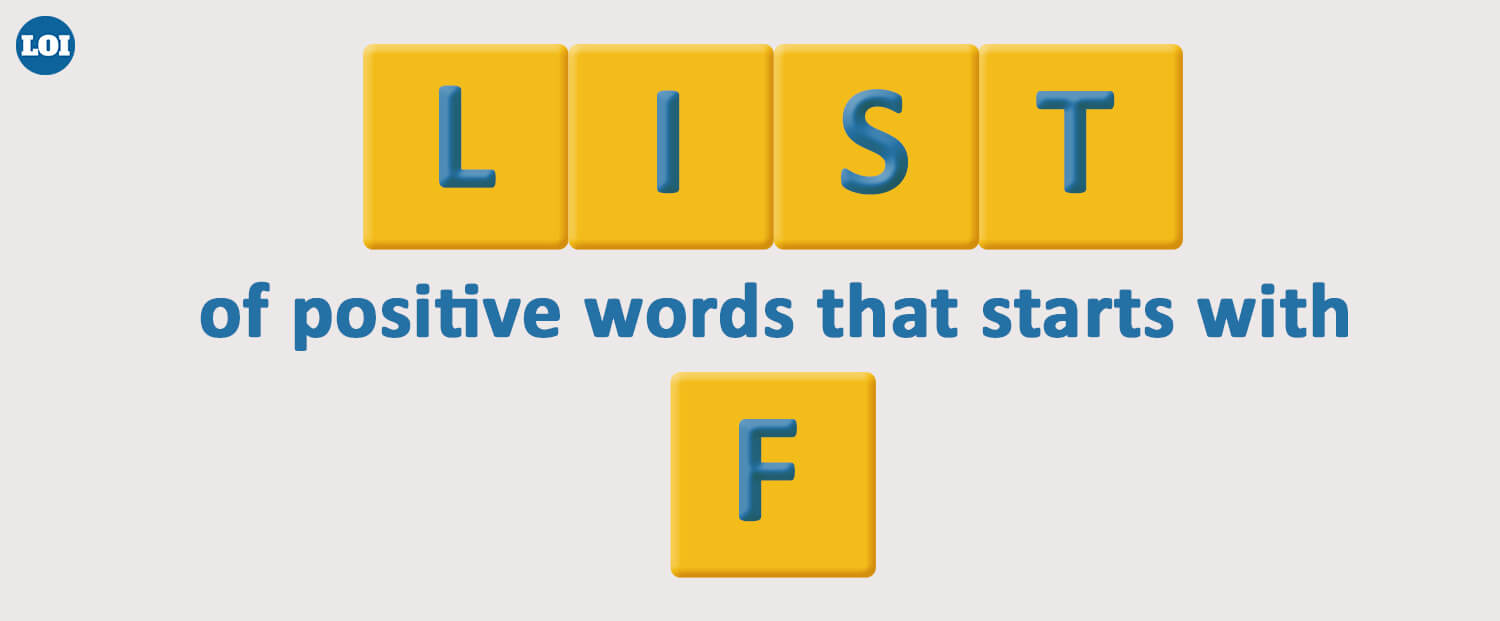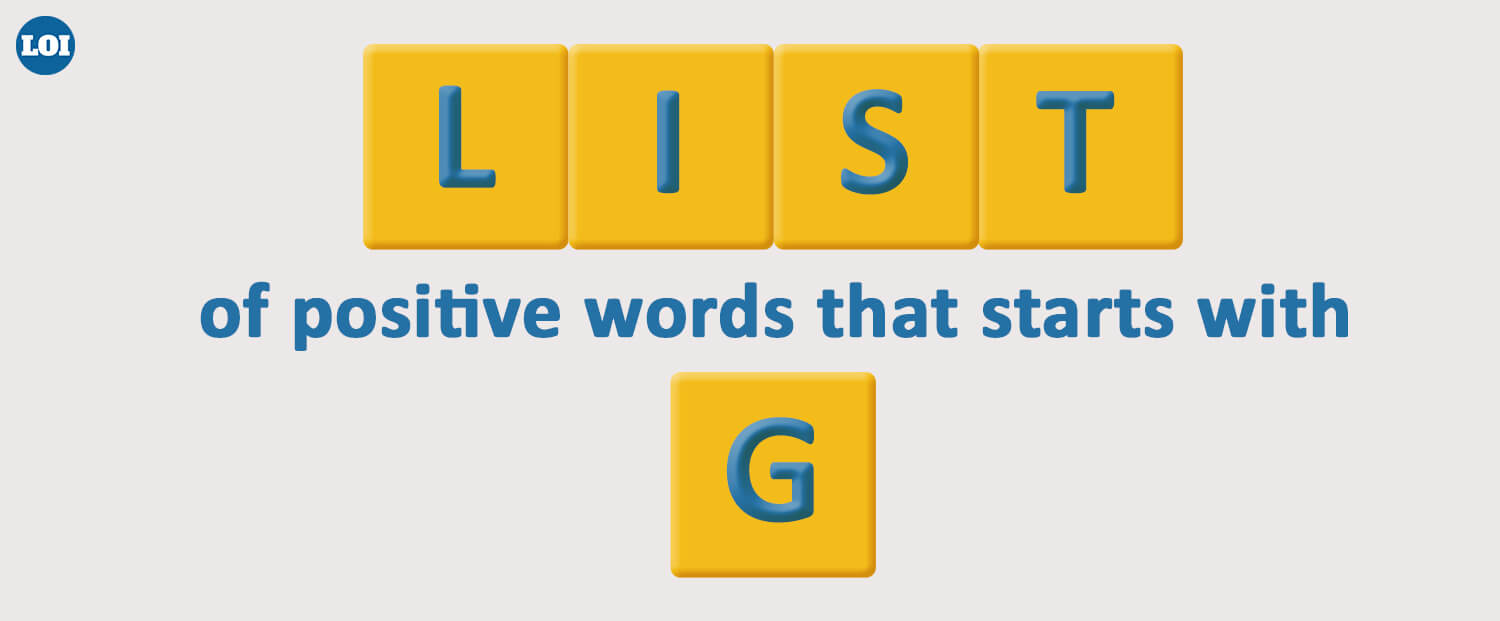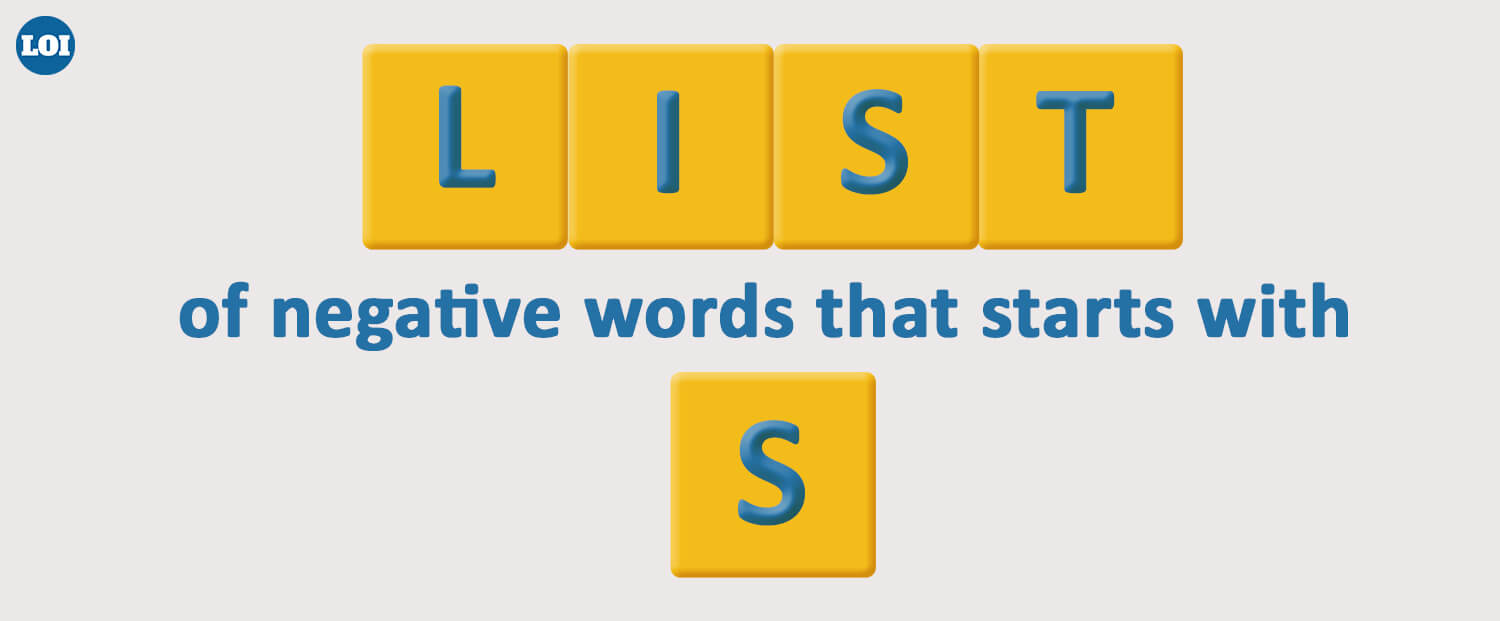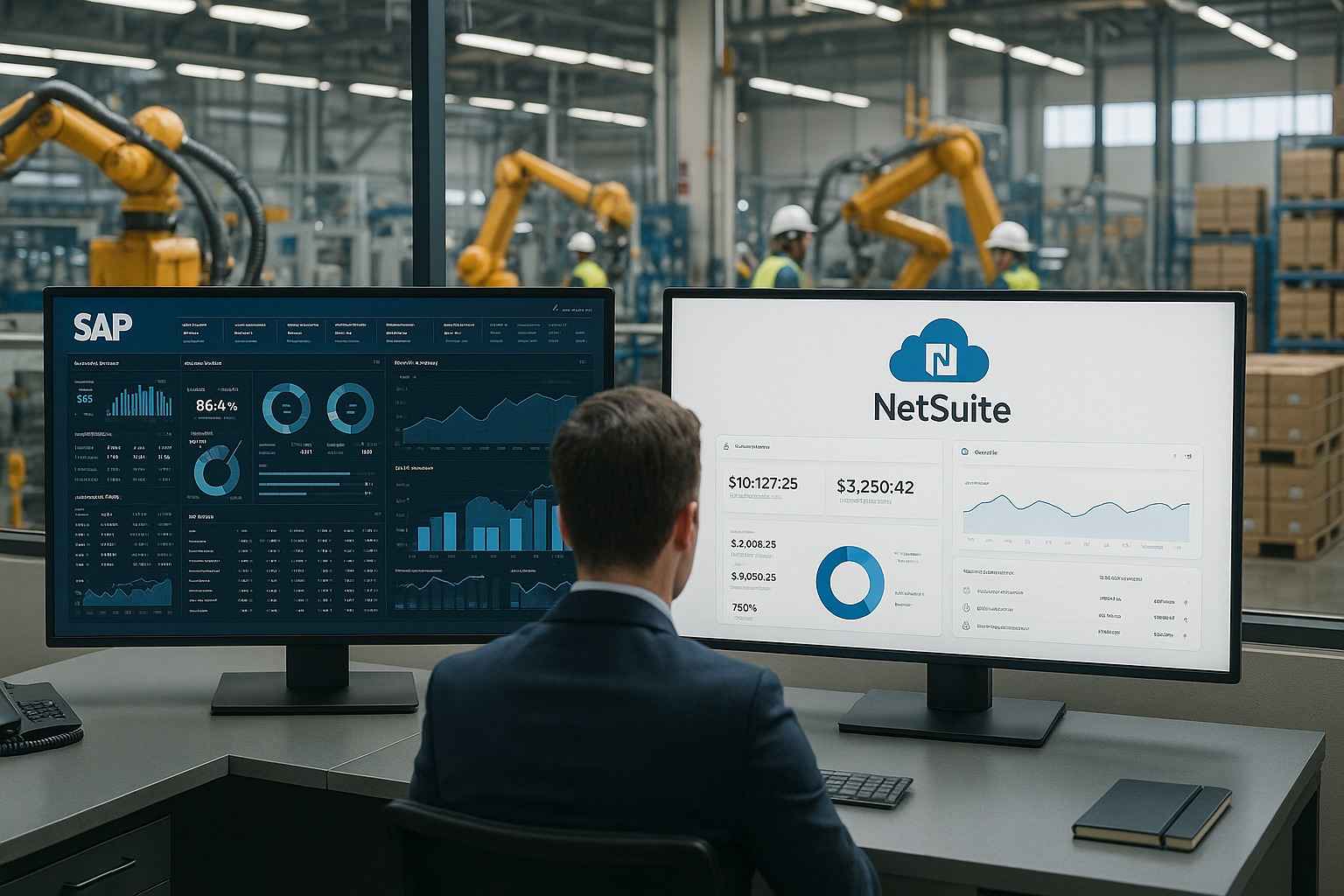If you manage a manufacturing company, you are aware that your ERP has the power to make or break your business. A well-designed system maintains customer satisfaction, inventory control, and efficient production. The wrong one? It hinders progress, slows you down, and leads to expensive errors.
SAP and NetSuite are two of the most well-known ERP brands in the manufacturing sector. Both are powerful. Both have devoted followers. However, they differ, and choosing the incorrect one could lead to years of annoyance.
Let's dissect it so you can make an informed decision.
Why Manufacturers Care About the ERP Decision
Manufacturing is a fast-paced process. You’re juggling:
An ERP is your company's central nervous system, not just a fancy database. Real-time connections are made between production, sales, inventory, finance, and even your shop floor. This implies that the ERP choice you make will influence your potential speed, accuracy, and profitability.
A Quick Look at SAP
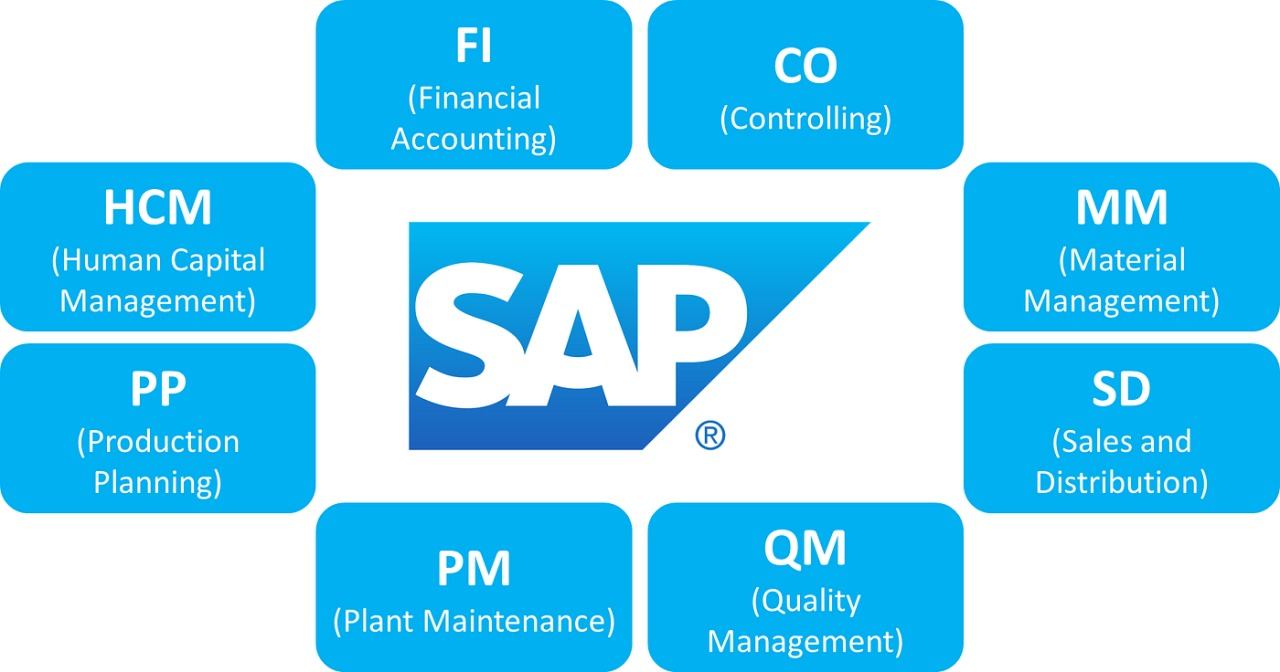
For many years, SAP has dominated the ERP market. It’s known for:
Deep industry-specific modules for manufacturing
Ability to handle very large, complex organizations
Robust reporting and analytics tools
Options for on-premises or cloud deployment
When SAP can be a great fit:
You’re a large enterprise with thousands of employees.
You have very complex production lines or global operations.
You have the funds and assets to carry out a more thorough customization and a longer implementation period.
Challenges to note:
Higher cost compared to many ERP systems
More complex implementation process
Can require a larger in-house IT team to manage
A Quick Look at NetSuite
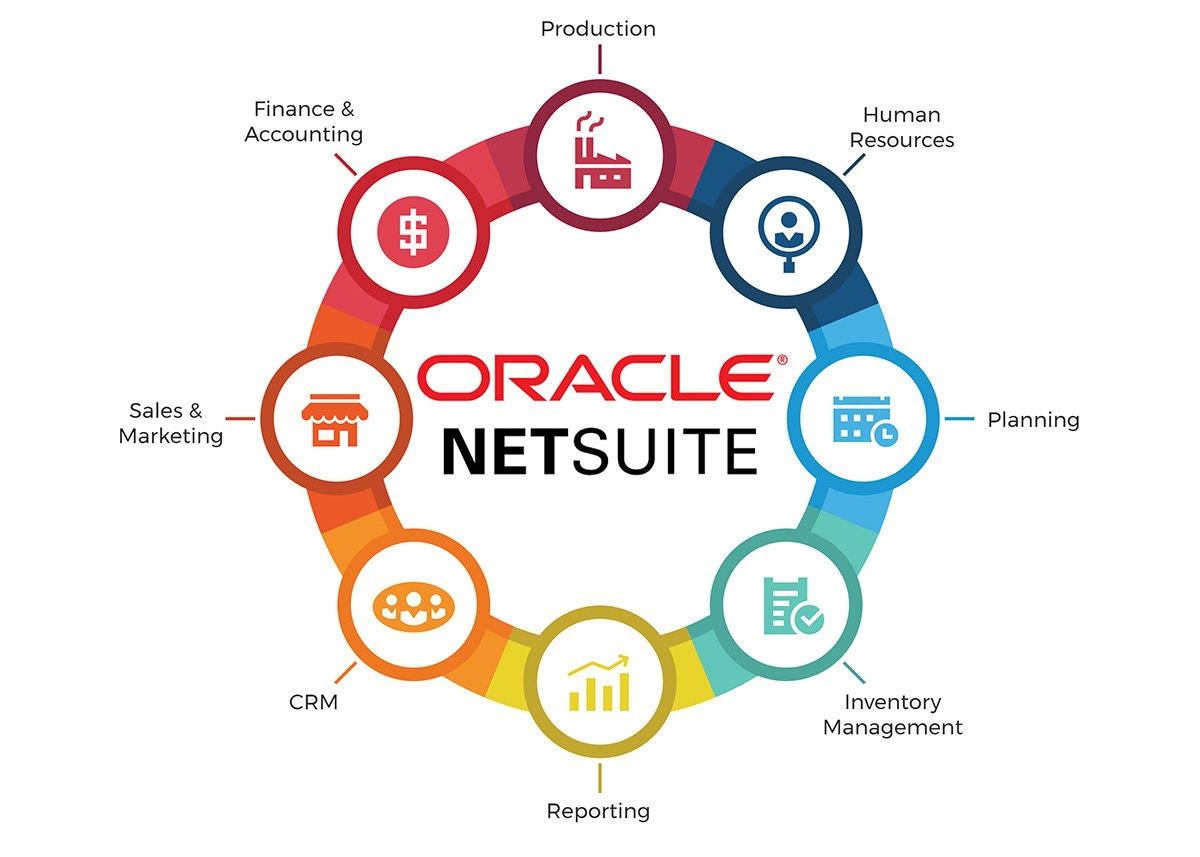
NetSuite is a cloud-first ERP that’s grown fast over the past 20+ years. It’s loved for:
Full cloud deployment—no servers to manage
Simple scalability as your company expands
Integrated modules for manufacturing, CRM, eCommerce, finance, and inventory
quicker implementation times than those of many legacy ERPs
When NetSuite can be a great fit:
You’re a small to mid-sized manufacturer or a division of a larger company.
You want real-time data without heavy IT infrastructure.
You’re looking for a flexible system you can adapt to as you grow.
Challenges to note:
May need third-party add-ons for some specialized manufacturing needs
Requires a constant, reliable internet connection.
Comparing SAP and NetSuite
Feature | SAP | NetSuite |
Deployment | Cloud & On-Prem | Cloud-Only |
Best For | Large enterprises, complex operations | Small–Mid manufacturers, fast growth |
Customization | Very high, but complex | High, with easier changes |
Implementation Time | Longer (months to years) | Faster (weeks to months) |
Cost | Generally higher | More flexible pricing |
IT Resources | Significant in-house team | Minimal internal IT needed |
How to Make a Choice: Things to Consider
How do I intend to grow over the next three to five years?
When you double in size, pick a system that will still fit you.
How complex are my processes today?
If you need deep, specialized manufacturing workflows, SAP might be the safer bet.
How fast do I need to be live?
If speed matters, NetSuite’s cloud-first setup is a strong advantage.
What’s my IT budget and team size?
ERP isn’t just software—it’s people, processes, and upkeep.
When NetSuite Makes the Most Sense
Many modern manufacturing companies are choosing NetSuite because:
They want maintenance and upgrades to be less of a hassle.
They require real-time access to production, sales, and inventory data.
Rather than spending money on expensive hardware, they would rather scale in the cloud.
They value the ability to integrate with modern tools quickly.
But here’s the catch: even the best ERP can miss the mark if it’s not implemented—or reimplemented—correctly. Over time, as your business changes, your ERP setup can drift from what you really need. That’s where getting NetSuite reimplementation help becomes crucial. It’s like hitting the reset button on your system so it works for today’s reality, not yesterday’s.
Real Talk: My 10+ Years in ERP Have Taught Me This
After spending millions on ERP, I've seen manufacturers wind up back where they were before—frustrated, mired in spreadsheets, and wondering why the program wasn't working.
Almost never is the software to blame. Fit, setup, and continuous alignment are key.
Select an ERP based on your budget, speed, and size.
Make training and implementation investments.
As your company expands, don't be scared to review your system configuration.
Final Word: Choosing the Right ERP Path for Your Manufacturing Future
SAP and NetSuite are both powerful for manufacturers.If you’re a massive global player with complex operations, SAP’s depth might be your match.If you want flexibility, scalability, and faster time to value, NetSuite could be the better choice.
Either way, remember: choosing the software is only step one. Making it work for you—that’s the real game.
Ready to see if your manufacturing company is getting the most out of NetSuite? Get expert NetSuite reimplementation help to make sure your ERP is driving profits, not problems.

